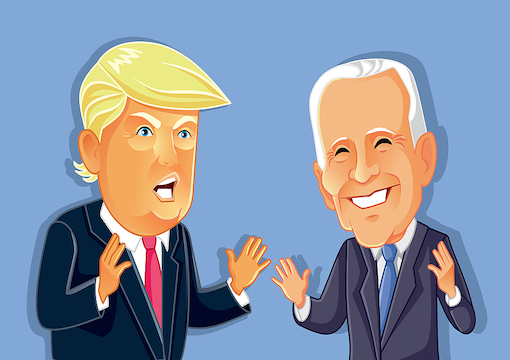
January 25, 2021

Source: Bigstock
Until the moment Donald J. Trump was informed that his successor had taken the oath of office, he was President of the United States. And what an ignominious ending it was. What began as an administration for the “forgotten man” terminated with a scorned man traveling to his palatial home with so much good accomplished and so much bad left for others to make right. The bad includes a nation so politically divided that one has to return to the days of the Vietnam War to see a parallel. Family members are disinvited to celebrations and festive gatherings because of the way they voted. Neighbors are friends no longer. Regions of the country are suspicious of and angry at other regions. The subject of secession of areas within states to form new states, join other states, or even secession of states to form new countries is a valid topic on talk shows and on the cover of respected publications. The unimaginable has become imaginable.
Recently, some friends and I discussed what Americans’ response would be if a state or a few states decided to leave the Union for some economic, social, or political reason. Would the public support a forcible reuniting of the country? The consensus was—probably not. One young man, a fugitive from Choate, declared that such a course of action would be “extremely judgmental.” One can only imagine the reaction of General William Tecumseh Sherman to such a statement. It would probably be almost silent; just the whisper of a saber slowly leaving its scabbard. But my friends might be correct. Increasingly, Americans only interact with those with whom they agree and who support their views. This is fundamentally detrimental to democracy; the inability or disinclination to find compromise with those of a different opinion. The option of physical separation is becoming attractive to many.
President Biden will face this challenge and many more, and always he must remember that approximately half the country did not vote for him and, in fact, are vehemently opposed to his agenda, his calls for “unity” notwithstanding. His pledge that Robert (Beto) O’Rourke will be charged with devising private gun ownership policy (including the possible confiscation of firearms) will cause a firestorm in the South and West of the nation. His support of free health care for illegal immigrants will inflame nearly everyone. Already he has vowed to prioritize federal financial assistance to small businesses owned by women and minorities. White males need not apply; so much for unity. All these and more are part of the political platform that he led to his victory. Meanwhile the left wing of his party will do all they can to pull him into their orbit. Will he be able to resist, or will he succumb to the maiden calls of “The Squad”? Time will tell, but time is not on his side.
And thus the delicate subject of the new president’s mental condition arises. Some people in their late 70s are spry, some are not. When Joe Biden is mentioned he, unfortunately, falls into the latter category. This is not a secret and is not meant to demean him or his service. It is not his fault; it’s his fate. But the fact remains that there is a very real possibility that this will be the only year he serves as chief executive. In addition to the many hardships and tragedies he has endured in his life, the pressures of the office might prove too great.
Which brings us to the Harris administration.
For someone who, when asked on camera if they are a socialist or if they are in favor of defunding the police, answered with peals of laughter (insulting to both the questioner and the citizens who elected her), it promises to be a trying time. A new cabinet will be needed, priorities reexamined, and policies formulated. The laughter will stop. And those policies, if too radical, will lead to scenes duplicating the riot witnessed earlier this month at the Capitol Building, but instead on a nationwide scale. This is not to be wished for and certainly not to be condoned, but it is predictable. President Harris will have to realize that despite the urging of junior members of Congress, radical measures are not usually popular in America and the word “revolution” is anathema to large segments of the population who fled here to escape the terrors of those who sought to “liberate the proletariat.” She must govern to the center or risk another period of American upheaval.
Thus, on Inauguration Day, as he approached the podium to take the oath of office on his family Bible, Joe Biden must have recalled all the challenges facing him: the deep political divisiveness in our country, the ongoing decay of our cities at the hands of “progressive” municipal governments, frayed international alliances, a pandemic that refuses to succumb to our best efforts, real or perceived racial injustice, economic inequality, an unsupportable federal debt, areas of the nation seething with resentment at the way their monuments to the past have been discarded, our trade war with China, which no one mentions anymore because we have been preoccupied with other products originating from China: specifically a deadly virus that has decimated our country. The U.S.–China trade war? They won. Our economy is in tatters. The Dow Jones Industrial Average is not an accurate measure of America’s economic well-being. Those who doubt should look about them. And no one should forget the Iranians, who will probably test the new administration almost immediately with some act of outrageous criminality. May the new president find the inner strength to solve at least some of these crises. If he can, he will be considered not only a success but a savior of the Republic he says he loves. All these issues, considerations, and concerns must have weighted heavily on his mind.
We hope.